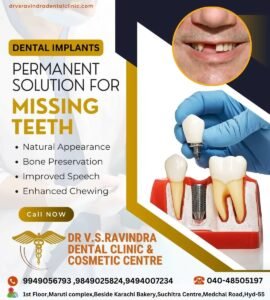The Ultimate Guide to Dental Implant Procedures
Understanding Dental Implants
Dental implants are a popular solution for missing teeth. They provide a permanent, durable alternative to dentures. Implants mimic the look and function of natural teeth. This makes them a preferred choice for many patients.
Benefits of Dental Implants
Dental implants offer numerous advantages. Firstly, they enhance your smile and boost self-confidence. Secondly, they improve oral health by preserving the jawbone. Unlike dentures, implants prevent bone loss. Moreover, they do not affect adjacent teeth, maintaining the integrity of your dental structure.
The Dental Implant Process
Initial Consultation
Your dental implant journey begins with a consultation. During this visit, your dentist will assess your oral health. They will take X-rays and discuss your medical history. This helps determine if you are a suitable candidate for implants.
Treatment Planning
If you are a good candidate, your dentist will create a personalized treatment plan. This plan outlines the number of implants needed and the procedure timeline. It also includes any preparatory steps, such as bone grafting.
Implant Placement
The next step is the surgical placement of the implant. This involves inserting a titanium post into the jawbone. The surgery is typically performed under local anesthesia. Post-surgery, the implant requires time to fuse with the bone. This process, called osseointegration, ensures stability.
Abutment Placement
Once the implant has fused with the bone, an abutment is placed. The abutment acts as a connector between the implant and the crown. This step is usually straightforward and performed under local anesthesia.
Crown Placement
The final step is attaching the custom-made crown to the abutment. The crown is designed to match your natural teeth. This ensures a seamless and natural appearance. With the crown in place, your dental implant is complete.
Post-Procedure Care
Immediate Aftercare
Post-procedure care is crucial for the success of your implant. Your dentist will provide specific aftercare instructions. These typically include managing swelling and pain with medication. Additionally, you should avoid hard foods and maintain good oral hygiene.
Long-term Maintenance
Long-term care of your dental implants is essential. Brush and floss regularly to prevent plaque buildup. Regular dental check-ups are also important. These appointments allow your dentist to monitor the health of your implants and surrounding teeth.
Potential Risks and Complications
Common Issues
While dental implants are generally safe, some risks exist. Common issues include infection, implant failure, and nerve damage. However, these complications are rare and can be managed with prompt medical attention.
Minimizing Risks
To minimize risks, choose an experienced dentist. Follow all post-procedure care instructions meticulously. Maintaining good oral hygiene also plays a significant role in preventing complications.
Conclusion
Dental implants are an excellent solution for missing teeth. They offer durability, improved oral health, and a natural appearance. By understanding the procedure and following proper care guidelines, you can enjoy a healthy, confident smile.




